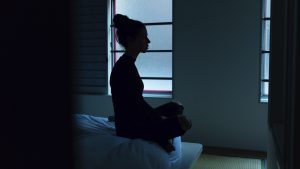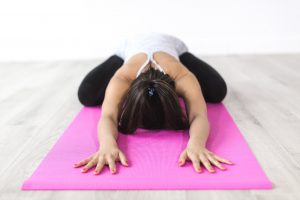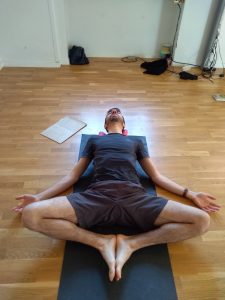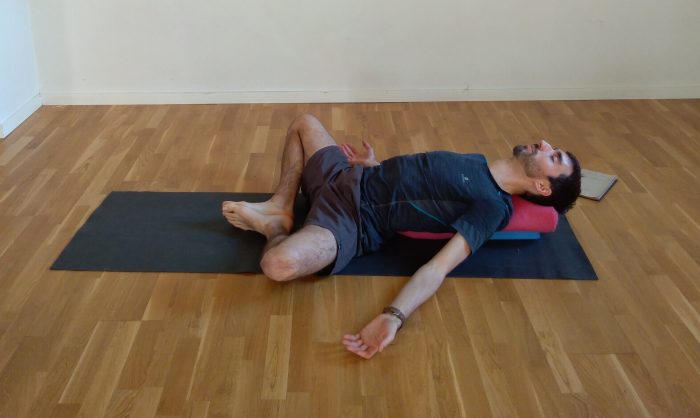I’m happy to publish this guest post from the Sleep Help Institute. Here comes with an important contribution to help you reduce stress through healthy sleep habits and yoga. Sweet dreams! // Cedric
Let’s face it; modern life is stressful. Everything from scheduling play dates to changing work schedules and listening to the news can make your blood pressure rise. Stress can get in the way of enjoying the beauty life has to offer. While you can’t eliminate all stress from your life, you can manage how you respond to it. A focus on better sleep along with a regular yoga routine is a practical and sustainable way to handle stress.

Focus on Sleep
As a necessary biological function, sleep is not optional. However, many people cut back on sleep to get more done. Unfortunately, anytime you get less than seven hours of sleep you enter a state of sleep deprivation.
The human body wasn’t meant to function without sleep. When you don’t get enough, your brain slows down, and your body changes how it performs. In the modern world, you have to make a concentrated effort to get the sleep you need, but it can be done by developing good sleep hygiene.
Sleep hygiene includes all the habits and behaviors in your life that contribute to the quality of your sleep. A few ways to improve your sleep-related habits include:
-
Keeping a Consistent Sleep Schedule: Your sleep-wake cycle is controlled by your circadian rhythms, which are 24-hour biological and physiological cycles. Waking up and going to bed at the same time each day allows your body to adjust to your body’s natural rhythms, encouraging the release of sleep hormones at the same time every night.
-
Increase Your Exposure to Natural Light: Your circadian rhythms rely on natural light to correctly time your sleep cycle. Adequate light exposure helps trigger the release of sleep hormones at the right time of day.
-
Creating a Sleep Sanctuary: A bedroom devoted to sleep lets you relax and helps the brain know that it’s time for rest. At night the room should be kept cool, dark, and quiet. Your mattress should be comfortable and supportive of your preferred sleep position.
-
Avoiding Screens Before Bed: The bright light from electronics devices like televisions and smartphones suppresses the release of melatonin, a sleep hormone. Turning these devices off two to three hours before bed reduces sleep disruptions.

Use Yoga for Better Sleep and Less Stress
Yoga can enhance your sleep and reduce stress. One study followed two groups of nurses to find out how yoga affect sleep and stress. One group participated in a yoga class for 50-60 minutes twice a week six months while the other group did nothing extra to reduce stress. The yoga group showed a significant improvement in the amount of sleep got and reported less stress while on the job.
Other studies have shown that yoga reduces the amount of inflammation-causing proteins released in the body. As stress goes down so does inflammation. Stress-reducing yoga can be used at any time but works particularly well as part of a bedtime routine. When used at night, gentle yoga poses further relax the mind and body.
Once you’re asleep, yoga continues to improve your overall welling. As you age, you spend less time in rapid eye movement (REM) sleep. Yoga helps you stay in REM sleep longer as you did when you were younger. It’s not the fountain of youth, but yoga can rejuvenate the quality of your sleep.
Author bio:
Samantha (Sam) Kent is a researcher for SleepHelp.org. Her favorite writing topic is how getting enough sleep can improve your life. Currently residing in Boise, Idaho, she sleeps in a California King bed, often with a cat on her face.



